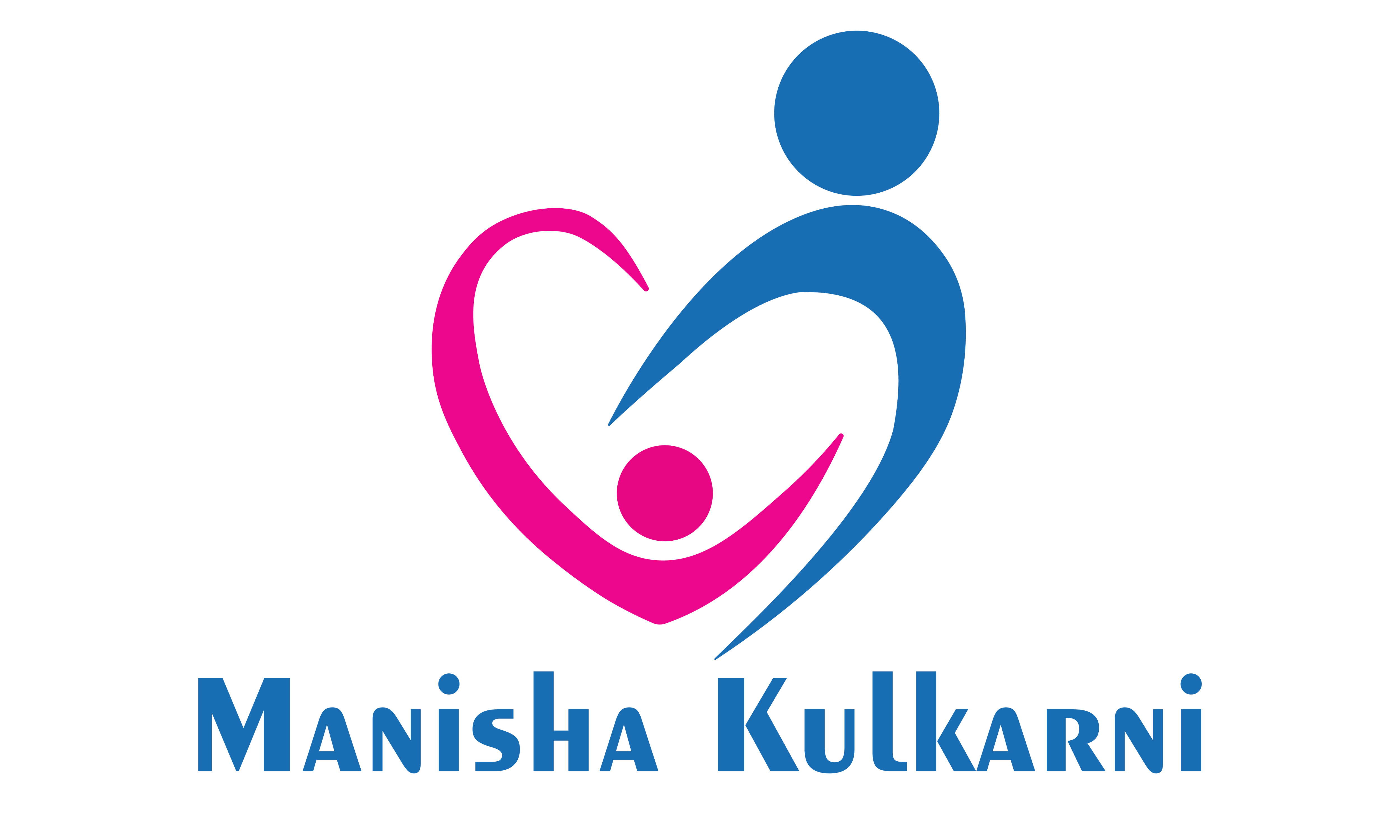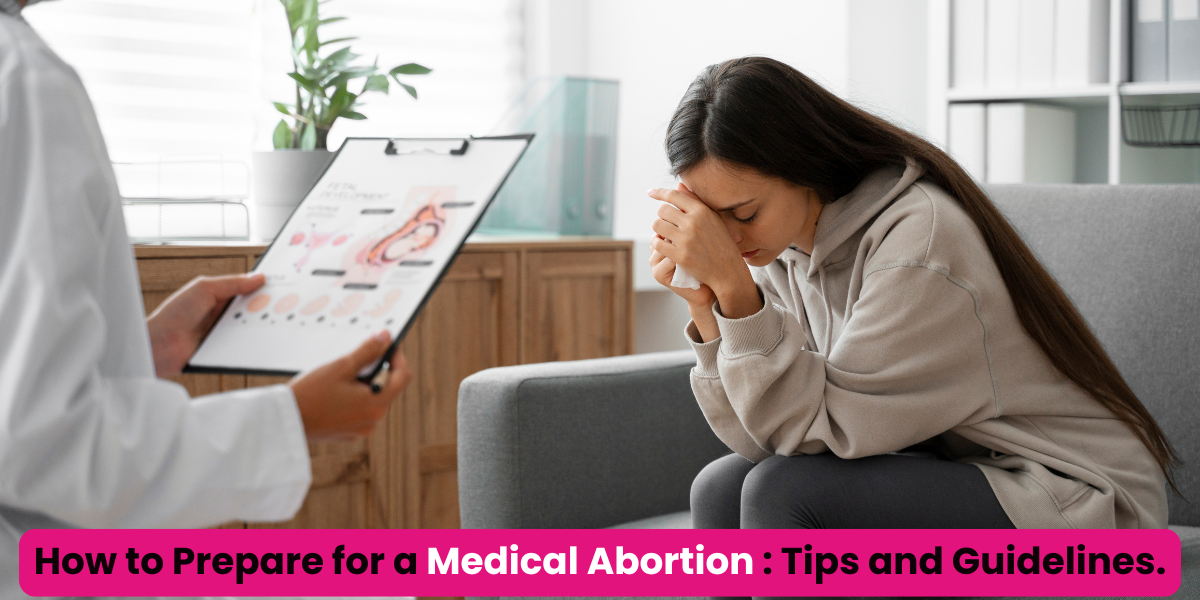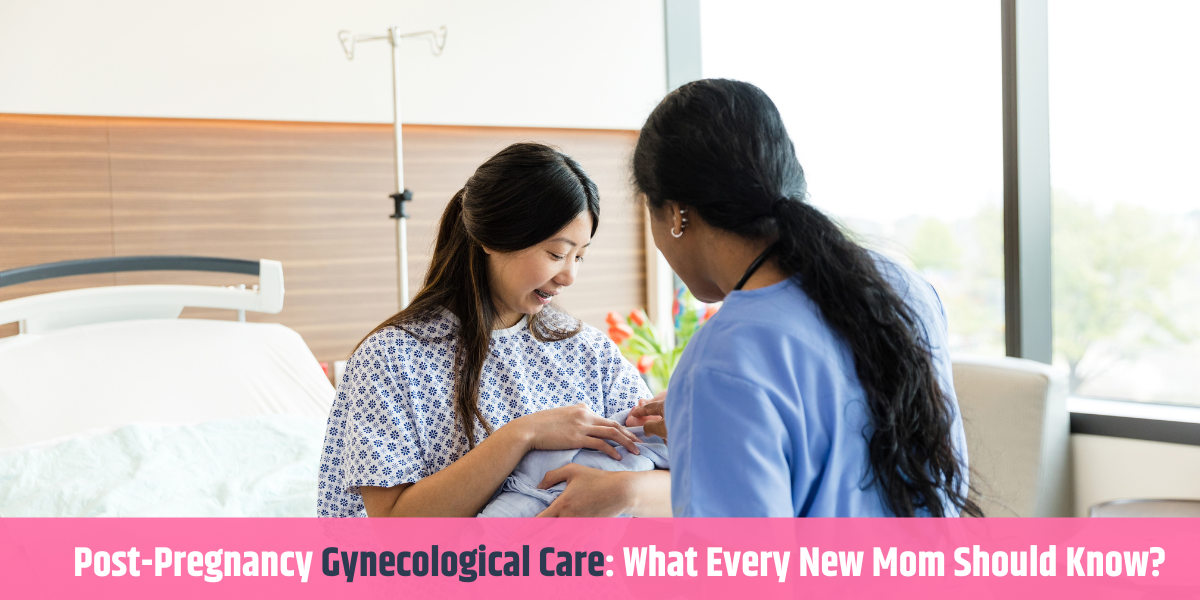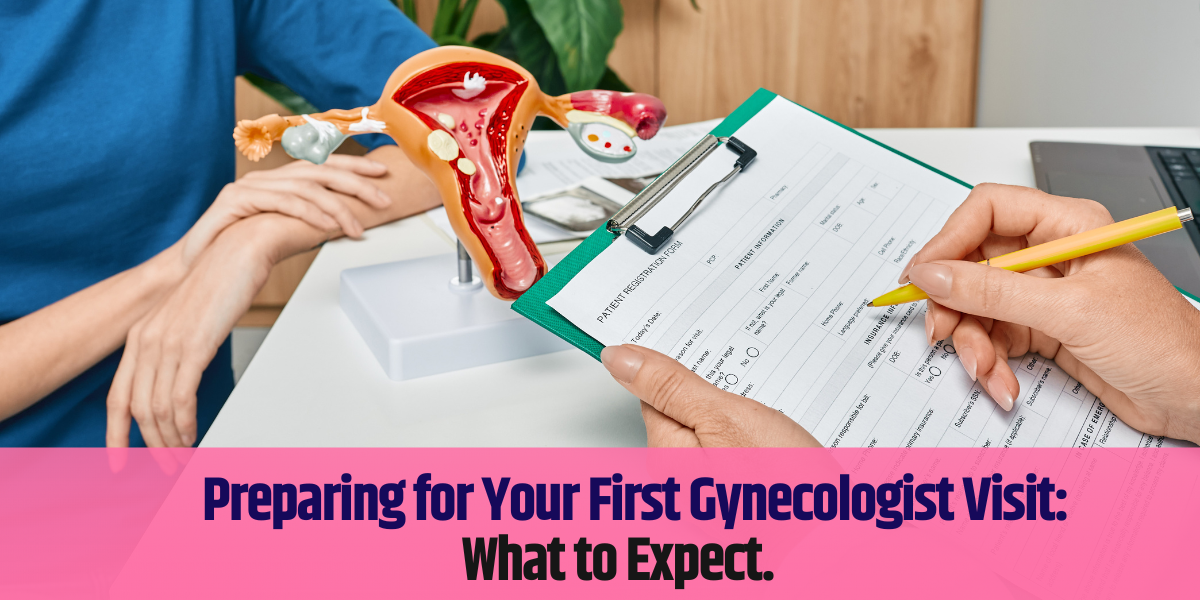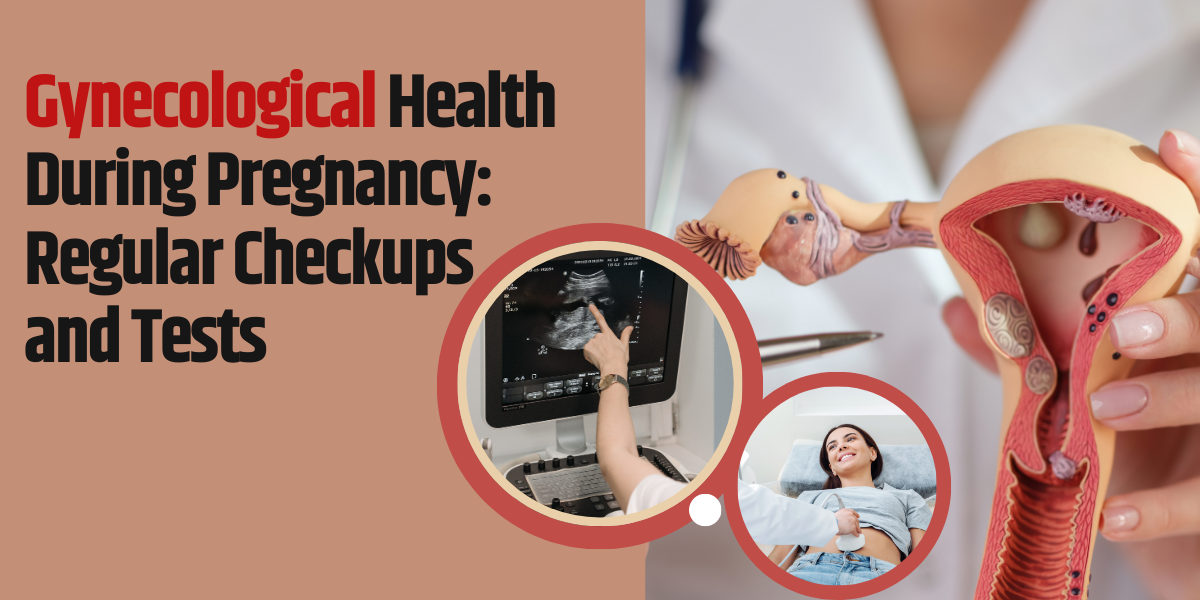The Stages of Menopause: Perimenopause, Menopause, and Postmenopause Explained. Menopause is an important stage in every woman’s life, bringing physical, emotional, and hormonal changes. Knowing about the stages of menopause—perimenopause, menopause, and postmenopause—can make it easier to manage. If you need guidance, Dr. Manisha Kulkarni, a Menopause Specialist in Magarpatta, can help you understand and navigate this phase of life. What is Perimenopause, and How Long Does It Last? Perimenopause, or the menopausal transition, is the time before menopause when hormonal changes begin. It usually starts in a woman’s 40s but can happen earlier. During this stage, symptoms may include: Irregular periods: Cycles may become shorter, longer, heavier, or lighter. Hot flashes and night sweats: Sudden feelings of heat or sweating, often disrupting sleep. Mood changes: You may feel more irritable, anxious, or emotional. Sleep problems: Trouble falling or staying asleep is common. Perimenopause can last for a few months to several years, with an average of 4–6 years. What Signals the Shift from Perimenopause to Menopause? Menopause is confirmed when a woman has not had a menstrual period for 12 months in a row. This means the ovaries have stopped releasing eggs, and hormone production has decreased significantly. What Happens During Menopause? Menopause usually occurs between ages 45 and 55, with the average age being 51. Symptoms at this stage may include: Vaginal dryness: Hormonal changes can make vaginal tissues less lubricated. Lower libido: Some women experience a reduced interest in sex. Bone health issues: Decreased estrogen can weaken bones and increase the risk of fractures. Weight gain: Hormonal shifts may lead to changes in body fat, especially around the abdomen. Some women may have mild symptoms, while others experience more noticeable changes. Treatment options like hormone therapy, lifestyle adjustments, and over-the-counter remedies can help manage symptoms. What Happens After Menopause? Postmenopause begins once menopause is complete. This stage lasts for the rest of your life. During this time: Hormones stabilize at lower levels. Some menopause symptoms, like hot flashes, may reduce, but others, like vaginal dryness, can persist. Risks for health issues like osteoporosis and heart disease may increase. Can Menopause Symptoms Be Managed Naturally? Yes, many women choose natural ways to handle symptoms, such as: Healthy eating: Include calcium-rich foods and reduce caffeine and alcohol. Exercise: Activities like walking and weightlifting can support bone health and improve mood. Stress management: Practices like yoga and meditation can help manage hot flashes and emotional changes. Herbal remedies: Black cohosh or red clover are popular but should be discussed with a doctor. If you’re exploring natural approaches, Dr. Manisha Kulkarni, a well-known Menopause Specialist in Magarpatta, can provide helpful advice for managing menopause effectively. When Should You Visit a Doctor? You should see a doctor if: Symptoms disrupt your daily life. Bleeding is unusually heavy or happens after menopause. You have concerns about conditions like bone loss or heart disease. A doctor can recommend options like hormone therapy, medication, or other strategies to address your symptoms. If you’re in Magarpatta, Dr. Manisha Kulkarni is experienced in helping women through all stages of menopause. Does Menopause Affect Mental Health? Hormonal changes during menopause can lead to mood swings, anxiety, or depression. If you feel overwhelmed or these issues continue, speaking with a doctor or counselor can help.
Hormonal Changes and Their Impact on Menstrual Timing: An In-Depth Look.
Hormonal Changes and Their Impact on Menstrual Timing: An In-Depth Look. For many women, understanding menstrual health can be challenging, especially as hormonal shifts impact cycle timing. Dr. Manisha Kulkarni, a gynecologist in Magarpatta, explains that these hormone changes are natural but can sometimes lead to irregular cycles. Knowing what affects menstrual timing helps women manage symptoms and improve overall reproductive health. What hormones regulate the menstrual cycle, and how do they interact? The primary hormones involved in the menstrual cycle are estrogen, progesterone, follicle-stimulating hormone (FSH), and luteinizing hormone (LH). FSH and LH trigger ovulation, while estrogen and progesterone prepare the uterine lining. A drop in these hormone levels signals the start of menstruation. Why do hormonal imbalances cause irregular menstrual cycles? Hormonal imbalances can disrupt the precise timing of ovulation and menstruation. Causes include stress, lifestyle changes, medical conditions like polycystic ovary syndrome (PCOS), thyroid issues, and extreme weight loss or gain. When hormones like estrogen or progesterone are too high or low, it can result in delayed, missed, or unusually heavy or light periods. How does stress influence hormone levels and menstrual timing? Stress triggers the release of cortisol, the body’s primary stress hormone, which can interfere with the normal functioning of reproductive hormones. High cortisol levels can suppress FSH and LH, delaying or even skipping ovulation and menstruation. This effect can cause irregular cycles or changes in menstrual flow. How do birth control and other medications affect menstrual hormones? Birth control pills, patches, and hormonal IUDs contain synthetic hormones that regulate the menstrual cycle by preventing ovulation or thickening cervical mucus. These methods can make periods lighter, more predictable, or even stop them altogether. Some medications for other conditions, such as thyroid issues or epilepsy, may also interfere with menstrual hormones. What role do lifestyle factors play in menstrual cycle regularity? According to Dr. Manisha Kulkarni, a gynecologist in Magarpatta, lifestyle factors like diet, exercise, sleep, and body weight significantly influence hormonal balance. Excessive exercise, for example, may lower estrogen levels, leading to lighter or missed periods. Inadequate sleep can disrupt hormone release, while an unhealthy diet may cause nutrient deficiencies that affect hormone synthesis and menstrual timing. Can weight gain or weight loss impact the menstrual cycle? Yes, significant weight gain or weight loss affects estrogen levels. Fat tissue produces estrogen, so being underweight can lead to low estrogen levels, possibly causing missed periods. Conversely, excess body fat can lead to higher estrogen levels, which may lengthen cycles or lead to heavy periods. How does age affect menstrual regularity? As women approach perimenopause, their hormone levels begin to fluctuate, leading to irregular periods. During this time, cycles may become shorter or longer, and the flow may vary. Eventually, menstruation stops completely with menopause. Adolescents also experience irregular cycles as their bodies adjust to reproductive hormones. Can hormonal changes lead to more severe menstrual symptoms? Yes, hormonal fluctuations can make PMS symptoms more pronounced. When estrogen or progesterone levels are imbalanced, symptoms such as cramps, bloating, mood swings, and fatigue can become more intense. Understanding your cycle and hormone levels may help manage symptoms better, especially through lifestyle changes or medical treatment. What can I do to regulate my menstrual cycle if hormonal changes cause irregularity? To help maintain hormonal balance and menstrual regularity, try managing stress, maintaining a balanced diet, and getting regular exercise. Consider consulting a healthcare provider if your cycles are persistently irregular, as they may suggest hormonal therapies, lifestyle adjustments, or treatment for any underlying conditions. When should I see a doctor about irregular menstrual cycles? If your cycles are consistently irregular, very painful, or accompanied by unusual symptoms like heavy bleeding, fatigue, or rapid weight changes, it’s essential to consult a healthcare provider. They can help identify whether the cause is a hormonal imbalance or another medical condition that requires treatment. Hormonal changes impact menstrual timing and overall health. Dr. Manisha Kulkarni, a gynecologist in Magarpatta, recommends that understanding your hormones can make it easier to manage symptoms and make healthier choices. If you have any ongoing issues with your cycle, it’s helpful to seek guidance and explore treatment options that support your well-being.
What is High-Risk Obstetrics? Understanding the Basics.
What is High-Risk Obstetrics? Understanding the Basics. High-risk obstetrics is a specialized branch of medicine focusing on the management of pregnancies that have a higher likelihood of complications. This can be due to pre-existing medical conditions, pregnancy-related issues, or other risk factors. Understanding high-risk obstetrics is crucial for ensuring the health and safety of both mother and baby. What Makes a Pregnancy High Risk? Several factors can contribute to a pregnancy being classified as high risk: Pre-existing Health Conditions: Women with chronic diseases such as diabetes, hypertension, or heart disease may have high-risk pregnancies. Age: Pregnant individuals over 35 or under 17 may face increased risks during pregnancy. Multiple Pregnancies: Carrying twins, triplets, or more can lead to complications that require specialized care. Previous Pregnancy Complications: A history of preterm labor, miscarriage, or stillbirth can make a subsequent pregnancy high risk. What Are the Common Complications in High-Risk Pregnancies? High-risk pregnancies can lead to various complications, including: Gestational Diabetes: This type of diabetes occurs during pregnancy and can lead to health issues for both mother and child. Preeclampsia: A pregnancy-related condition characterized by high blood pressure and potential damage to organs, usually occurring after the 20th week of pregnancy. Preterm Labor: Labor that begins before 37 weeks of gestation can pose risks for the baby’s development and health. Placenta Issues: Conditions like placenta previa or placental abruption can complicate delivery. How Are High-Risk Pregnancies Managed? Management of high-risk pregnancies often involves a multidisciplinary approach, including regular monitoring and specialized care. Patients may require: Frequent Prenatal Visits: Regular check-ups with a healthcare provider like Dr. Manisha Kulkarni, a renowned gynecologist in Magarpatta, can help monitor the health of both mother and baby. Advanced Imaging and Testing: Ultrasounds and other diagnostic tests help assess the baby’s growth and detect any potential issues early. Lifestyle Modifications: Recommendations regarding diet, exercise, and stress management can be crucial for maintaining a healthy pregnancy. Medication Management: Some women may need medication to control existing conditions or manage pregnancy complications. When Should You Seek Help? If you are pregnant and experience any concerning symptoms, such as severe headaches, vision changes, abdominal pain, or decreased fetal movement, it is important to contact your healthcare provider immediately. Early intervention can be key in managing high-risk pregnancies. In conclusion, understanding high-risk obstetrics is essential for ensuring a safe pregnancy and delivery. If you have concerns about your pregnancy, consulting a specialist like Dr. Manisha Kulkarni, a gynecologist in Magarpatta, can provide the guidance and care you need. Awareness of the risks and proactive management can lead to better outcomes for both mother and child.
How to Prepare for a Medical Abortion: Tips and Guidelines.
How to Prepare for a Medical Abortion: Tips and Guidelines. Medical abortion is a non-surgical procedure used to terminate an early pregnancy, usually up to 10 weeks. Consulting with a specialist like Dr. Manisha Kulkarni, a Gynecologist in Magarpatta, Pune, ensures you are well-prepared for the process. Here’s a guide to help you navigate through this experience. What is a medical abortion? A medical abortion involves the use of medication to end a pregnancy, usually within the first 10 weeks. Two medications, mifepristone and misoprostol, are typically used in combination. The first pill stops the pregnancy from growing, while the second pill helps the uterus expel the pregnancy tissue. How do I prepare emotionally for a medical abortion? It’s important to prepare emotionally by talking to a trusted person, counselor, or support group about your decision. Consider your feelings and make sure you’re comfortable with the procedure. Having a strong support system in place can help reduce anxiety and stress. What should I expect during a medical abortion? During a medical abortion, expect to experience cramping, bleeding, and possibly some nausea. These symptoms usually begin a few hours after taking misoprostol. The process may feel like an intense period and can last several hours. It’s helpful to have access to a comfortable space, pain relievers (like ibuprofen), and sanitary pads. Are there any dietary guidelines before a medical abortion? There’s no strict dietary restriction, but staying hydrated and eating light meals before taking the medication is recommended. Some people prefer avoiding heavy or greasy food, as nausea is a common side effect. What should I wear for the procedure? Wear comfortable, loose clothing on the day of your medical abortion, especially since cramping and bleeding may make you uncomfortable. You may also want to bring a change clothes and use sanitary pads instead of tampons. What should I prepare for my recovery? Prepare your recovery area at home by having sanitary pads, painkillers, a heating pad for cramps, and plenty of water. You may feel fatigued, so arrange for someone to help with daily tasks if possible. Taking a couple of days off from work or other responsibilities can be helpful. Is it necessary to avoid certain activities before and after a medical abortion? Yes, avoid strenuous activities, such as heavy lifting or intense exercise, for at least a few days after the abortion. It’s also advisable to refrain from sexual intercourse or using tampons for up to two weeks to reduce the risk of infection. Can I drive myself home after a medical abortion? Although you may be physically able to drive after taking the first pill (mifepristone), it’s best to arrange for someone to drive you home after taking the second pill (misoprostol) since you might experience significant pain or discomfort. How long does it take to recover from a medical abortion? Recovery time varies, but most people feel physically better within a few days. Light bleeding can last for up to two weeks, and some cramping may persist. Your healthcare provider may schedule a follow-up appointment after a week or two to ensure the procedure was successful. How should I manage pain during a medical abortion? Ibuprofen is commonly recommended for managing pain and cramping. Avoid aspirin, as it can increase bleeding. In addition to medication, using a heating pad on your lower abdomen can also relieve discomfort. What follow-up care is needed after a medical abortion? Your healthcare provider will likely schedule a follow-up visit to confirm that the abortion was complete and to check your overall health. This can involve an ultrasound or blood test. If any complications arise, such as heavy bleeding, fever, or persistent pain, seek medical attention immediately. What are the signs of complications after a medical abortion? While complications are rare, signs to watch out for include: Excessive bleeding (soaking through two or more pads in an hour for more than two hours) Severe abdominal pain Fever lasting more than 24 hours Unusual or foul-smelling vaginal discharge If you experience any of these symptoms, contact your healthcare provider immediately. How soon after a medical abortion can I get pregnant? Ovulation can occur as soon as two weeks after a medical abortion, meaning it’s possible to become pregnant again quickly. If you want to avoid pregnancy, talk to your healthcare provider about contraception options. Is it normal to feel emotional after a medical abortion? It’s common to experience a range of emotions after a medical abortion. Feelings of relief, sadness, or guilt are all natural responses. Seek professional counseling if you’re struggling emotionally, as post-abortion counseling services are available to help you process your feelings. Preparing for a medical abortion involves both physical and emotional readiness. Ensure that you have all necessary medications, a comfortable recovery space, and a support system in place. If you have any doubts or concerns, don’t hesitate to reach out to Dr. Manisha Kulkarni, your gynecologist in Magarpatta, Pune, for guidance.
Post-Pregnancy Gynecological Care: What Every New Mom Should Know?
Post-Pregnancy Gynecological Care: What Every New Mom Should Know? Becoming a new mom is a beautiful, life-changing experience, but the journey doesn’t end with childbirth. Post-pregnancy care is vital to help your body recover and address any health concerns that may arise. While caring for your baby is your priority, it’s equally important to take care of yourself. Under the expert guidance of Dr. Manisha Kulkarni, a gynecologist in Magarpatta, Pune, you can ensure proper recovery and address any postpregnancy health issues effectively. What Every New Mom Should Know Postpartum Checkups: Why They Matter One of the first steps in post-pregnancy care is scheduling a postpartum checkup with your gynecologist. This visit usually happens around 6 weeks after childbirth. It allows your doctor to assess your recovery, check for any signs of infection, and discuss any concerns you may have. During this checkup, your doctor will: Examine your uterus to ensure it’s returning to its pre-pregnancy size. Check the healing of any stitches, whether from a C-section or a vaginal tear. Assess your overall well-being, including emotional health. These checkups are crucial for catching any complications early and ensuring a smooth recovery. Healing from Childbirth: What to Expect Every woman’s body heals differently after childbirth, whether it was a vaginal delivery or a C-section. Here’s what you might experience: Vaginal Bleeding : Postpartum bleeding is normal and can last up to 6 weeks. It’s important to monitor the amount and consistency. If bleeding becomes heavier or has a foul smell, consult your gynecologist immediately. Perineal Discomfort: For vaginal deliveries, especially with tears or episiotomies, there may be discomfort in the perineal area. Use ice packs and sitz baths to relieve pain, and talk to your doctor if it doesn’t improve. C-Section Recovery: C-section recovery can take longer. Be mindful of your stitches and follow your doctor’s advice for wound care to avoid infections. Remember, it’s normal to experience some discomfort, but if pain persists or worsens, don’t hesitate to reach out to your doctor. Managing Postpartum Hormonal Changes Post-pregnancy comes with significant hormonal changes, which can affect both your physical and mental health. Some of the common symptoms include: Mood Swings: These can be caused by fluctuating hormones and lack of sleep. If feelings of sadness, anxiety, or overwhelm persist, it could be postpartum depression, and you should seek help from your healthcare provider. Night Sweats: Hormonal changes can cause excessive sweating, especially at night. Stay hydrated and wear breathable fabrics to stay comfortable. It’s important to communicate with your doctor about any emotional changes or symptoms you’re experiencing. Breastfeeding and Breast Health Breastfeeding can be a wonderful bonding experience, but it also comes with challenges. Common issues new moms face include: Sore Nipples: It’s common to experience soreness in the early stages of breastfeeding. Use lanolin creams or consult your gynecologist for advice on healing. Breast Engorgement: This happens when your breasts are overly full of milk. Frequent feeding or pumping can help alleviate this discomfort. In addition, make sure to keep an eye out for signs of mastitis, an infection that can cause redness, pain, and fever. Seek medical attention if these symptoms arise. Pelvic Floor Care: Strengthening Your Core Pregnancy and childbirth put a lot of strain on the pelvic floor muscles, which can lead to issues such as incontinence or pelvic organ prolapse. Pelvic floor exercises, also known as Kegels, are essential for rebuilding strength and preventing long-term problems. Your gynecologist can guide you on how to perform Kegels correctly and may recommend seeing a physical therapist if needed. Don’t ignore any discomfort or signs of weakness in this area, as early intervention can prevent future issues. Contraception and Family Planning After childbirth, it’s important to discuss contraception options with your gynecologist. Even if you’re breastfeeding, pregnancy is still possible. Your doctor can guide you on safe and effective methods of birth control based on your health and family planning goals. Whether you’re considering hormonal options like birth control pills, an intrauterine device (IUD), or natural family planning, your gynecologist will help you make the best choice. Sexual Health: When Is It Safe to Resume? Many new moms wonder when it’s safe to resume sexual activity after giving birth. It’s generally recommended to wait until after your postpartum checkup to ensure that your body has healed. However, every woman’s recovery is different, so it’s essential to listen to your body and communicate openly with your partner. It’s common to experience vaginal dryness due to hormonal changes, especially if you’re breastfeeding. Your gynecologist may recommend lubricants or vaginal moisturizers to help ease any discomfort. Postpartum Mental Health: Seeking Help if Needed The emotional journey of motherhood can be overwhelming. If you experience prolonged sadness, anxiety, or mood swings, you may be dealing with postpartum depression or baby blues. It’s vital to talk to your doctor about these feelings to receive the support and treatment you need. Never hesitate to reach out for help if you’re struggling emotionally. There are many resources available, and seeking support is a critical part of post-pregnancy care. Taking care of yourself after pregnancy is just as important as caring for your newborn. By staying on top of your postpartum checkups, managing physical recovery, and paying attention to your emotional health, you’ll set yourself up for a smooth and healthy recovery. If you’re looking for expert post-pregnancy care, Dr. Manisha Kulkarni, a renowned gynecologist in Magarpatta, provides personalized care to help new moms heal and thrive. Book an appointment today for a comprehensive postpartum checkup and advice tailored to your needs.
Preparing for Your First Gynecologist Visit: What to Expect.
Preparing for Your First Gynecologist Visit: What to Expect. A first-time visit to the gynecologist can feel a bit overwhelming, but it’s an important step toward managing your health. Whether you have specific concerns or are going for a routine check-up, understanding what to expect can help ease your anxiety. Seeing an experienced gynecologist like Dr. Manisha Kulkarni, a trusted gynecologist in Magarpatta, can make the experience more reassuring. This guide will walk you through the process of your first visit and how to best prepare for it. Why Should You See a Gynecologist? Many women think they should only visit a gynecologist when they have a specific problem, but regular gynecological check-ups are vital for preventive care. Here are some common reasons to schedule your first visit: Routine Check-Up: Even if you feel healthy, seeing a gynecologist annually helps monitor your reproductive health and detect potential issues early. Menstrual Issues: If you have irregular periods, severe cramps, or heavy bleeding, it’s important to get professional advice. Sexual Health: A gynecologist can help with concerns about sexual health, contraception, and STDs. Pregnancy Planning or Concerns: Whether you’re planning to get pregnant or facing difficulties, a visit can provide valuable guidance. It’s recommended that women start seeing a gynecologist in their late teens or when they become sexually active. No matter your reason, your first visit should focus on understanding your health and addressing any questions you may have. Preparing for Your First Visit Feeling nervous before your first appointment is normal. However, a little preparation can make the experience more comfortable. Here are a few steps to help you get ready: Know Your Medical History: Be ready to answer questions about your menstrual cycle, sexual activity, and any family history of medical conditions like cancer or heart disease. Knowing these details will help your gynecologist give you better advice. List Your Concerns: Write down any questions or concerns you have so you don’t forget them during the appointment. This could include anything from irregular periods to questions about birth control. Don’t Worry About Grooming: Many women feel self-conscious about grooming before their visit, but gynecologists are professionals who see patients every day. Your doctor’s focus will be on your health, not your grooming habits. Wear Comfortable Clothing: You’ll likely need to undress from the waist down for the exam, so wearing comfortable, easily removable clothes will make things simpler. What Happens During the Visit? Understanding the process of your first gynecological exam can help reduce anxiety. Here’s what you can expect during the visit: Medical History Discussion: Your gynecologist will begin by discussing your medical history, lifestyle, and any symptoms or concerns you have. General Physical Exam: A general physical exam may be conducted, including measuring your blood pressure, weight, and checking your overall health. Breast Exam: The doctor might perform a breast exam to check for lumps or any abnormalities. Pelvic Exam: This part of the exam may seem intimidating, but it’s quick and generally painless. The gynecologist will check the health of your reproductive organs, which involves inspecting the vulva, vagina, and cervix. Pap Smear (if necessary): If you’re over 21 or sexually active, the doctor may recommend a Pap smear, which tests for abnormal cells in the cervix that could indicate cervical cancer. Discussion and Advice: After the exam, the gynecologist will talk to you about your health, answer your questions, and provide recommendations for birth control, diet, or any follow-up care if needed. What to Ask Your Gynecologist Your first visit is an excellent opportunity to ask questions and get clarity on any issues you’ve been wondering about. Some common questions include: What birth control options are best for me? How can I manage menstrual pain? When should I get a Pap smear or HPV vaccine? How can I reduce my risk of sexually transmitted infections (STIs)? Remember, no question is too small or embarrassing. Your gynecologist is there to help, not to judge. Guidelines for a Successful First Appointment To make your first visit as stress-free as possible, keep these tips in mind: Be Open and Honest: Share any concerns or symptoms with your gynecologist, even if they seem personal or uncomfortable. This is the only way your doctor can provide the best care. Relax: Try to stay calm during the exam. Gynecologists are trained to make the process as smooth and comfortable as possible. Don’t Hesitate to Speak Up: If something doesn’t feel right or you don’t understand something, speak up. Good communication is key to a successful visit. Your first visit to the gynecologist is a crucial step in taking care of your overall health, and there’s no need to feel anxious. By knowing what to expect and preparing ahead of time, the experience can be much more comfortable. If you’re in Hadapsar, Dr. Manisha Kulkarni, a highly trusted gynecologist in Hadapsar, can provide expert guidance and make your visit smooth and reassuring. Regular check-ups with Dr. Manisha Kulkarni ensures that any potential health concerns are detected early, helping you stay confident and proactive about your well-being.
Gynecological Health During Pregnancy: Regular Checkups and Tests.
Gynecological Health During Pregnancy: Regular Checkups and Tests Pregnancy is an exciting journey filled with many changes and emotions. It is also a crucial time for a woman’s health, making regular checkups and tests essential. These visits help monitor the mother’s and baby’s health, ensuring a smooth pregnancy. If you’re looking for a trusted gynecologist in Magarpatta, Pune Dr. Manisha Kulkarni is an excellent choice to guide you through this important phase. The Importance of Regular Checkups Monitoring Your Health: Regular checkups allow your gynecologist to track your health throughout the pregnancy. These visits help identify any potential issues early on, such as gestational diabetes, high blood pressure, or infections. By staying ahead of these problems, your doctor can provide the appropriate treatment to ensure your safety and that of your baby. Tracking Baby’s Development: During checkups, your gynecologist will monitor the baby’s growth and development. This is usually done through ultrasounds, fetal heart rate checks, and other assessments. These tests ensure that the baby is growing as expected and can help identify any concerns early on. Discussing Symptoms: Every pregnancy is unique, and women experience various symptoms. Regular checkups provide an opportunity to discuss any concerns or symptoms you may have, such as nausea, fatigue, or unusual pain. Your doctor can offer advice and solutions to make your pregnancy more comfortable. Essential Tests During Pregnancy Several tests are typically performed throughout your pregnancy to monitor your health and the baby’s development. Here are some important ones: Blood Tests: Early in your pregnancy, blood tests are conducted to check for blood type, Rh factor, and any infections, such as HIV or syphilis. These tests are crucial for ensuring that you and your baby receive the best care throughout the pregnancy. Urine Tests: Urinalysis is done during regular checkups to check for signs of infection or complications like gestational diabetes. Monitoring protein levels in your urine can also help detect preeclampsia, a serious condition that can occur during pregnancy. Ultrasounds: Ultrasound scans are essential in monitoring your baby’s growth and development. The first ultrasound is typically performed between 6 and 10 weeks to confirm pregnancy and check the fetal heartbeat. Subsequent ultrasounds are done at various stages to assess the baby’s growth and position. Glucose Screening: Around 24 to 28 weeks, a glucose screening test is performed to check for gestational diabetes. This involves drinking a sugary solution and then having your blood tested. If your results are abnormal, further testing may be necessary. Group B Strep Test: Between 35 and 37 weeks, a test for Group B Streptococcus (GBS) is done. This bacteria can be harmless for adults but can cause serious infections in newborns. If you test positive, your doctor will provide antibiotics during labor to protect your baby. Lifestyle Changes and Health Tips In addition to regular checkups and tests, maintaining a healthy lifestyle during pregnancy is vital. Here are some tips: Nutrition: Eating a balanced diet rich in fruits, vegetables, whole grains, and lean proteins is crucial for both you and your baby. Proper nutrition supports your baby’s growth and helps you manage pregnancy symptoms. Exercise: Regular, moderate exercise can help reduce discomfort and improve your mood. Consult your gynecologist for safe exercises during pregnancy. Activities like walking, swimming, or prenatal yoga can be beneficial. Hydration: Staying hydrated is essential during pregnancy. Drink plenty of water to support your body and help with common issues like swelling and constipation. Rest: Pregnancy can be tiring, so prioritize rest and sleep. Listen to your body and take breaks when needed. Avoid Harmful Substances: Stay away from alcohol, tobacco, and drugs during pregnancy. These substances can harm your baby and lead to complications. When to Seek Help While regular checkups are essential, it’s equally important to know when to seek medical advice. If you experience severe abdominal pain, heavy bleeding, severe headaches, or any unusual symptoms, contact your gynecologist immediately. Early intervention can prevent complications and ensure the health of both you and your baby. Maintaining gynecological health during pregnancy is vital for ensuring a safe and healthy experience for both the mother and baby. Regular checkups and tests help monitor progress and address any concerns promptly. If you’re looking for a caring and experienced gynecologist in Magarpatta, Pune, consider consulting Dr. Manisha Kulkarni, who can guide you through this incredible journey. Remember, your health and your baby’s health are the top priority during this special time, so don’t hesitate to seek care and support.
